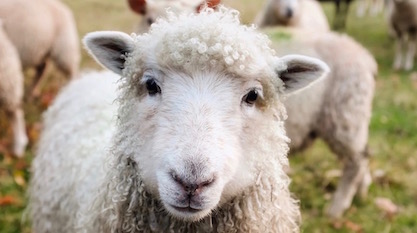 Culture & Ethics
Culture & Ethics
 Life Sciences
Life Sciences
 Medicine
Medicine
Hybrid Sheep-Human Embryos Show Need for Biotech Regulation


Biotech is rocketing forward into areas that impact life at the most fundamental and basic levels. CRISPR permits any cell or life form to be genetically altered, opening the door to the intelligent (or stupid) redesign of the human species, the ending of terrible diseases, or the unleashing by terrorists of an altered viral pandemic.
Scientists have created synthetic life not based in evolution or creation. Human cloning is being done. A recent monkey success reveals the potential of the birth of the first cloned baby.
And now, scientists have created an embryo that is 0.01 percent human. From the National Geographic story:
Building on a controversial breakthrough made in 2017, scientists announced on Saturday that they have created the second successful human-animal hybrids: sheep embryos that are are 0.01-percent human by cell count.
The embryos, which were not allowed to develop past 28 days of age, move researchers a small step closer to perhaps growing human organs for medical transplant.
That would be terrific. Of course, animal-rights activists will howl at using animals as sources of human organs, but then, that is because they are essentially anti-human. But there is a very real concern here that scientists could manufacture an animal that has a partial human nature, say the capacity for rationality. That would be an ethical nightmare on several fronts.
The point I keep trying to make isn’t that we should shut down all of this research, but that we need to have an intense discussion about how to best ensure it doesn’t wander into unethical fields. More than that, we need to decide what would be unethical.
But currently, beyond some voluntary guidelines and public funding restrictions, there is little to prevent a real life Dr. Moreau from going to work — particularly in China.
We really do need to have a serious democratic discussion about biotechnology, AI, and other such fast-advancing research. Time is growing short.
Photo credit: 12019, via Piaxabay.
Cross-posted at The Corner.
